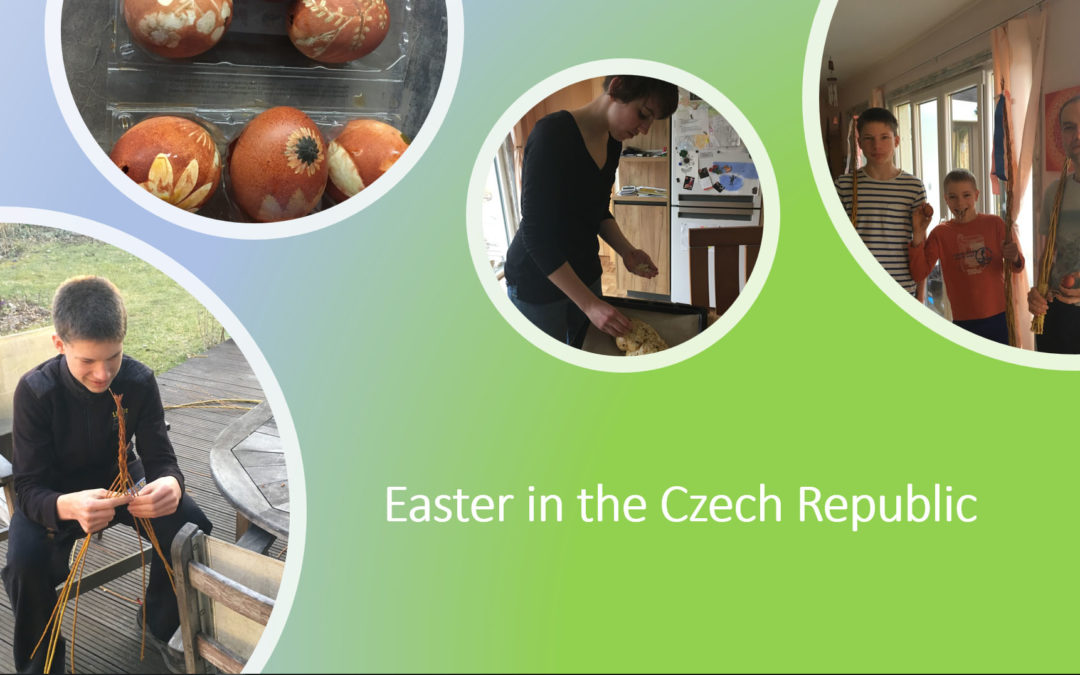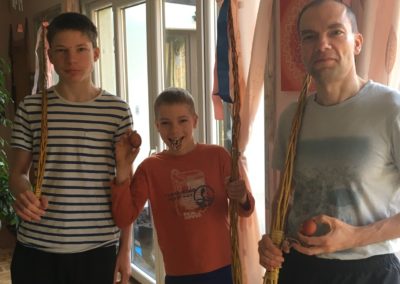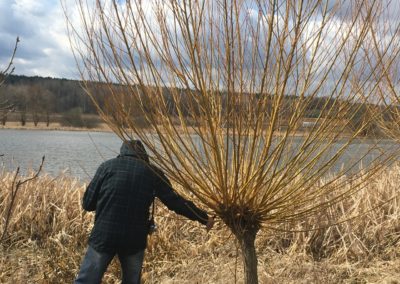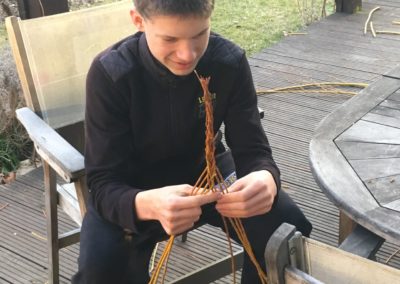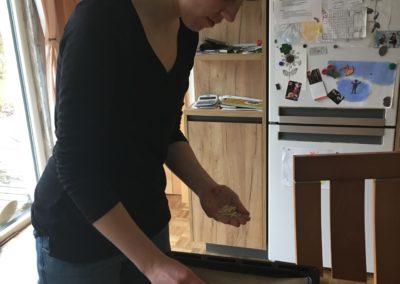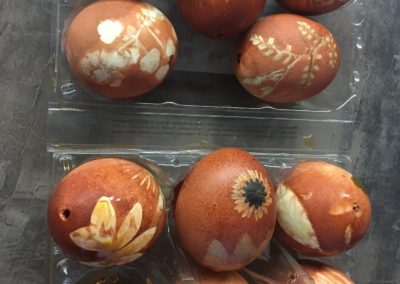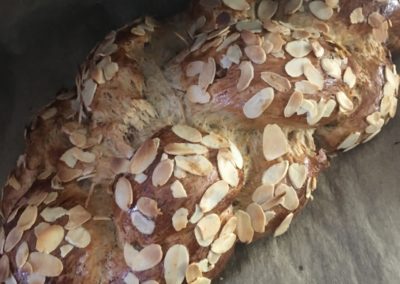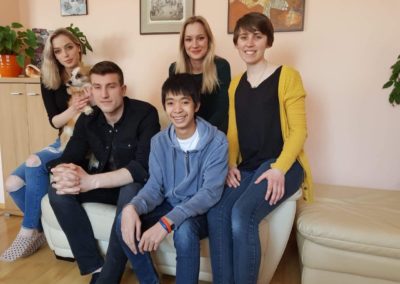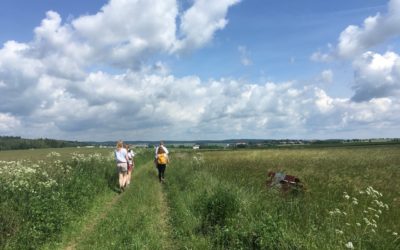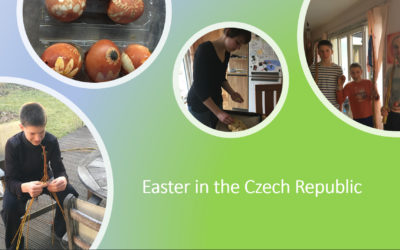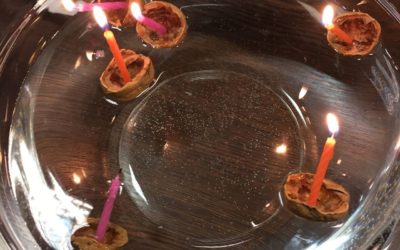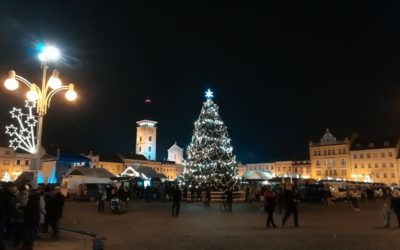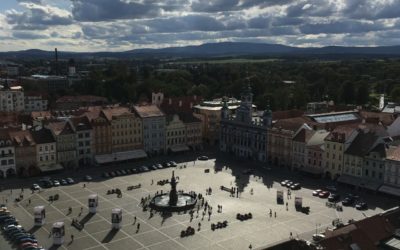This picture sums up Easter in the Czech Republic pretty well, I think. My two host brothers and my host dad are ready to leave on a Velikonoční kroužek. (My host brothers, rather, my dad stayed home.) They have their pomlázka, a whip made of willow branches, and are already sporting some ribbons which my host mother and I gave them as thanks for our, um, whipping. We also gave them some painted eggs and some gingerbread, according to the Easter song:
Hody hody doprovody (this is nonsense)
Give us painted eggs
If you have none painted,
at least give white ones
The hen will lay you more
In the corner chamber
On the green rods
(*very roughly translated by me/some google translate, the last two lines I have no idea)
The boys then went house to house in the neighborhood, collecting eggs and sweets and ‘whipping’ the women in each house along with their friends. Some groups visited our house, so my gardening with my host mom was interrupted in order for us to receive the whipping and give the visitors candy and eggs. (It’s just a few taps on the rear, really- but I think you’d have to grow up with it to get used to it.) In some villages, adult men go around along with younger ones, and receive shots of hard alcohol along with eggs. Some villages also throw women into water. (This is all in the name of preserving the woman’s youth/strength/fertility. But in the southwest, where I am, everything is very symbolic and laid-back. The boys complained that there were hardly any girls their age to whip, because these days a lot of the younger girls go out with the boys to get candy, like trick or treat.)
The boys made their own pomlazkas, which was neat. The fish pond by the house supplied more than enough willow branches. My host mom and I had our own traditional women’s work, namely, baking beranka and vánočka and painting the eggs. We dyed the eggs with red onion skins and patterned them with garden buds and grasses. My classmates told me mostly grandmas do that now, but I thought it had a much prettier result than the dyes I have used in the US. Vánočka is tricky, I tried to learn how to braid the dough on my own, using some rope to practice beforehand.
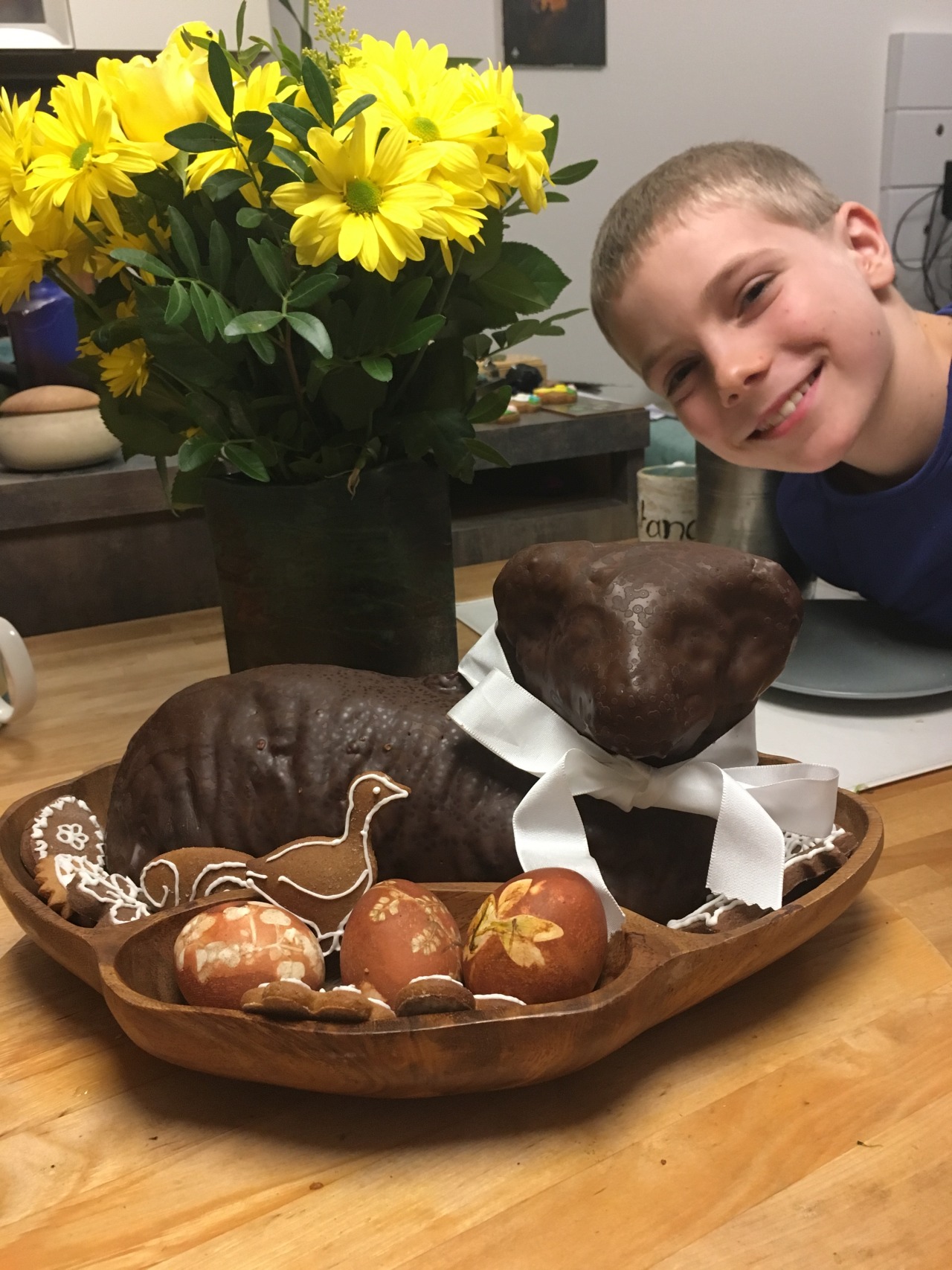
Beránek is the Czech word for lamb. Biskupsé beránka is a delicious Easter treat featuring dried fruits, walnuts, and a generous chocolate coating. Czechs buy a special baking mold to make it.
Easter Monday was a strange, beautiful (as in the weather was nice) holiday that I’d never celebrated before. Easter Sunday, sure- but my Easter basket and church service in Ohio felt like a very different celebration than this one. I’m lucky that I got to celebrate with not just one, but two wonderful host families. I visited my first one Monday afternoon!
More from Meghan

